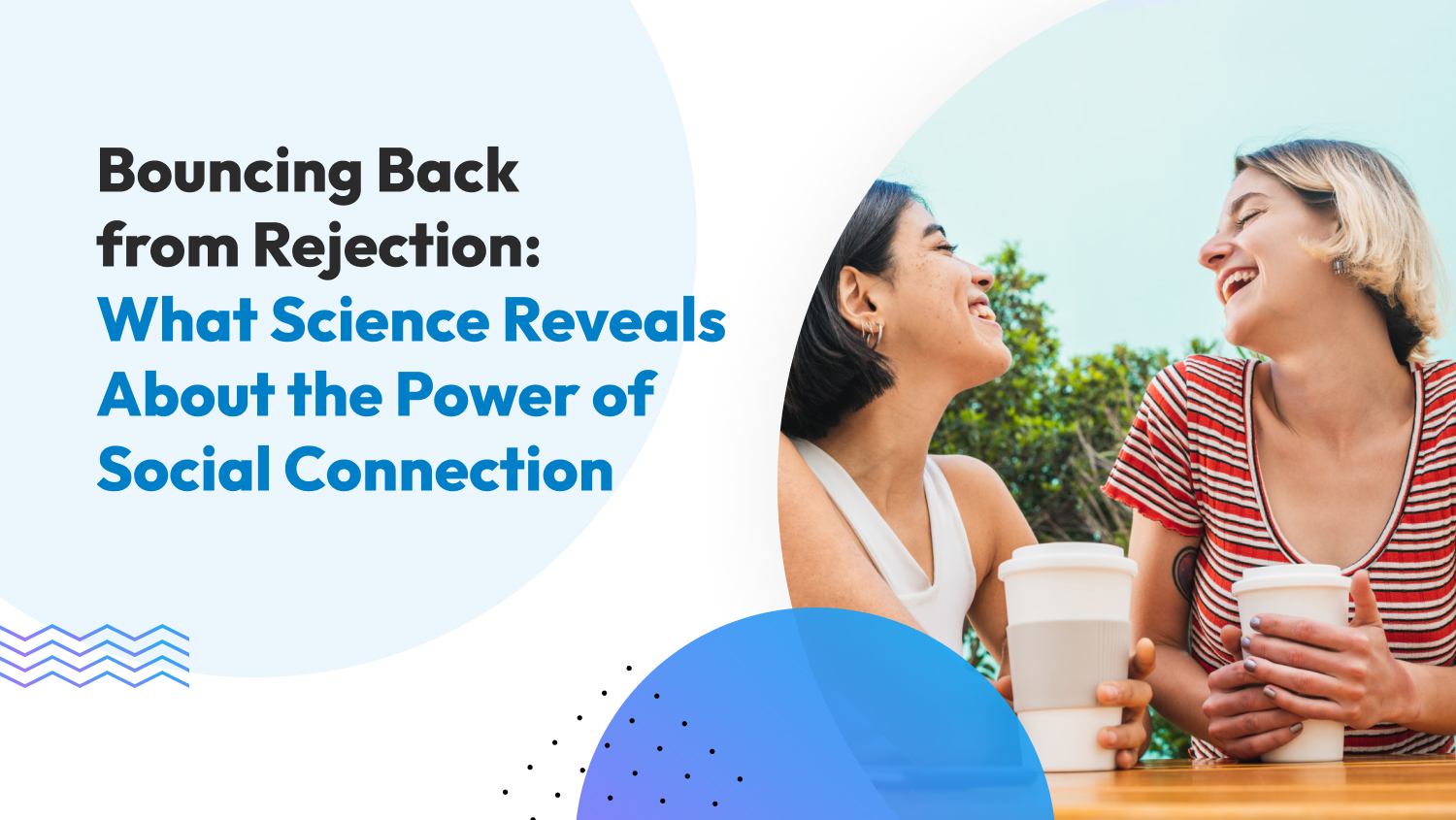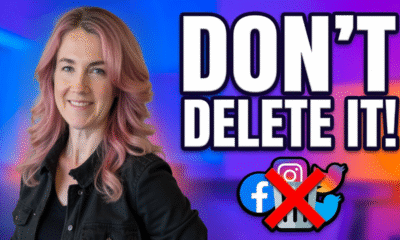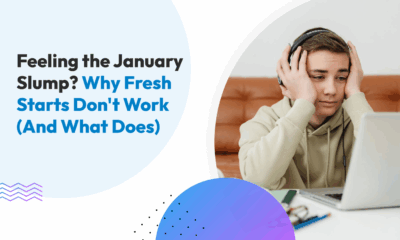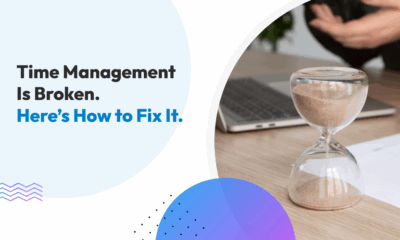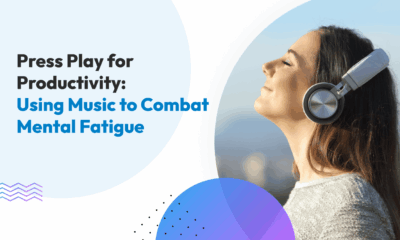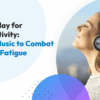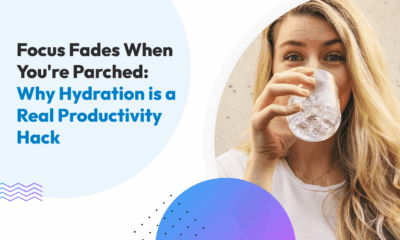Science Says
Bouncing Back from Rejection: What Science Reveals About the Power of Social Connection
As business owners, freelancers, and founders, we often face situations that can feel like social rejection – from losing a pitch to being left out of industry events or getting a nasty comment on your social media post. While some of these moments of ‘social exclusion’ might seem minor (we even wonder, “Is it all in my head?”), research shows they can start a vicious cycle. If we don’t handle these experiences well, our mood is affected, we slip into a lot of negative thinking and we start avoiding social contact all the more.
A recent study from Cornell University examined what we can do to protect against or recover from being left out. Their findings reveal surprisingly simple ways to maintain our emotional and mental well-being when we encounter social exclusion.
The Power of Virtual Rejection
The study used a simple virtual ball-tossing game called Cyberball, a well-validated and widely used way to test social exclusion in laboratory settings. In this game, participants are told they are playing with two real people online but are actually interacting with computer-programmed responses. To simulate social exclusion, the computer players would stop passing the ball to the human participant.
Even though participants in this study were college students with an average age of 20 years who knew they were part of a research study, being left out of this simple virtual game triggered significant negative emotional and cognitive responses across all measures – from their mood and sense of belonging to their feelings of control and social comfort. This finding demonstrates just how sensitive humans are to social exclusion, even in seemingly trivial virtual interactions.
Action Item: If getting sidelined in a simple virtual game can trigger negative feelings and state of mind, imagine the potential impact of other online encounters of rejection. So, don’t dismiss your own emotional responses to virtual exclusion, they are just as valid as getting the cold shoulder in-person.
This is also a good reminder to be mindful of both our online and offline professional interactions. When sending emails, responding to LinkedIn messages, or participating in virtual meetings, make conscious efforts to be inclusive and acknowledge others’ contributions.

Quality vs. Casual Connections
The authors of this study wanted to find the best methods to address the negative emotions and mental state following an experience of exclusion. They looked at 1) what forms of social contact or social support can help (face-to-face conversation, just being reminded about meeting someone later, or simply having someone else in the room during the game), 2) when the support happened (before, during, or after being left out) and 3) who provided the social support (a friend or stranger)
Their results showed that chatting with a friend was very effective, both before and after the exclusion experience. Being reminded of an upcoming meeting with a friend after getting left out was also very effective.
But the other types of social connection didn’t show clear benefits. Chatting with a stranger before and after rejection, or having someone else (friend or stranger) in the room or the game when the participants experienced rejection didn’t result in better emotional and cognitive states.
Action Plan: This finding highlights the importance of having a support system we can reach out to during low times. But how and when we connect with them can make a big difference. Seek out face-to-face conversations with a friend rather than just being around others.
Even the anticipation of interaction with friends helps recovery from social exclusion. So set a ‘date’ with a friend when you feel down and dejected. Plan regular meetups with friends and family, as even thinking about these upcoming interactions can help.
Indirect Support Works: No Need for Trauma Dumping
You might be wondering what kind of conversations with friends researchers found helpful in dealing with rejection. It turns out there isn’t a need to explicitly talk about the negative experience. In the experiment, researchers used Arons’s Fast Friends questions, a series of prompts meant to explore and deepen the existing friendship between participants. Some of the questions were, “What do you value most in a friendship?” and “What would constitute a perfect day for you?”
This type of indirect support (versus direct support, eg. “My advice to you is..”) is effective at making participants feel better or recover more quickly from the experience. In fact, researchers think indirect support works better than addressing issues head-on because it doesn’t make us feel inferior or indebted to the person providing support. Not only is it easier for us to receive this type of help but it also puts no pressure on the friend we reach out to.
Action Plan: There is no need to rehash and dump sore feelings on a friend. Focus on positive future planning rather than dwelling on setbacks to recover from social exclusion. Having the same forward-looking and relationship-focused conversation before experiencing rejection helps too.

Friendship quality matters in some cases
Is a certain length of friendship or degree of closeness necessary for these interventions to be successful? The study shows it only matters when you chat with a friend before a social exclusion incident. But the results of chatting with a friend after rejection showed no association with the quality of the relationship.
The researchers suggest this difference might exist because when you talk to a friend after being excluded, you’re dealing with a specific, immediate problem. The conversation helps meet your immediate need for social connection, regardless of how close you are to that friend.
Compare this to when you talk to a friend before any exclusion happens, you don’t know what challenges might come up. If you’re not very close to the friend, you might be unsure about whether they’ll be there for you if you need support later. This uncertainty might make the conversation less effective at protecting you from future negative experiences.
Action Plan: Here is another reminder to enrich our social circles and support system. We have different family members and friends we turn to for different reasons. Have a friendly chat with someone you trust before entering potentially stressful social situations.
Timing matters: Addressing momentary vulnerability near the time of rejection
The study focused on interventions that can preempt a spiral into negative thoughts and feelings after being ignored or brushed off. So, the timing of social contact before, during, and immediately after was compared to see which one helped participants best.
Interestingly, they found that recovery interventions such as chatting with a friend or being reminded of an upcoming interaction with a friend after the virtual rejection showed more robust results. Participants reported moods and mental states equal to or even better than if they were not excluded from the game at all.
So while having a conversation with a friend before social rejection helps, having that chat or looking forward to that chat after the incident seems to work better!
Action Plan: If you are going into a new situation where you anticipate that you might suffer this kind of social exclusion, why not time a friendly chat right after instead of before?
Limitations of the Study
It’s important to note that the study was conducted with college students in a controlled laboratory setting, primarily focusing on the short-term effects of social exclusion. The business world involves more complex and longer-term social dynamics. Additionally, the study’s participants were predominantly female and from a specific age group, which might affect the generalizability of the results. The types of interventions and the timing were limited, and it would be interesting to see if conversations over the phone or via video calls have the same impact as face-to-face conversations with a friend.
Wrap Up
For business owners, freelancers, and founders, rejection is inevitable. And experiencing this social exclusion virtually or in person can have real negative emotional and cognitive impacts that can affect self-esteem, focus, and performance. This research suggests that building and maintaining strong friendships isn’t just good for networking – it’s essential for emotional resilience.
The study’s findings emphasize the importance of maintaining quality relationships and making the effort to reach out to our support system when we need them. Simple social interactions such as chatting with a friend or even plans to catch up can help us recover from the slights of being left out or ignored in social settings.
So schedule regular face-to-face conversations, plan future meetups, and other occasions to deepen relationships with friends. Practicing this strategy to develop resilience to rejection can be a tremendous help in our entrepreneurial journey.


